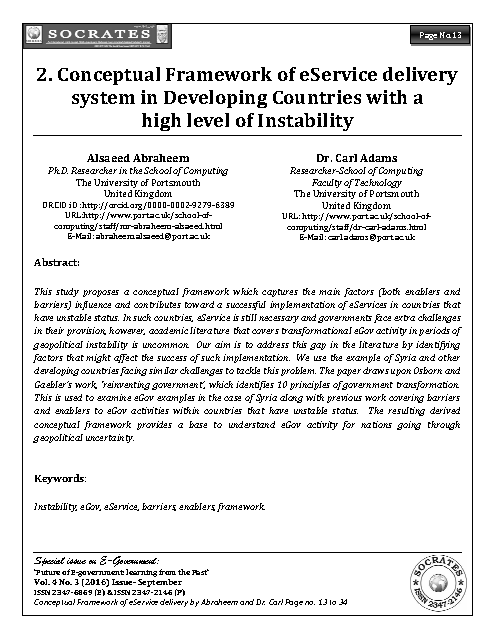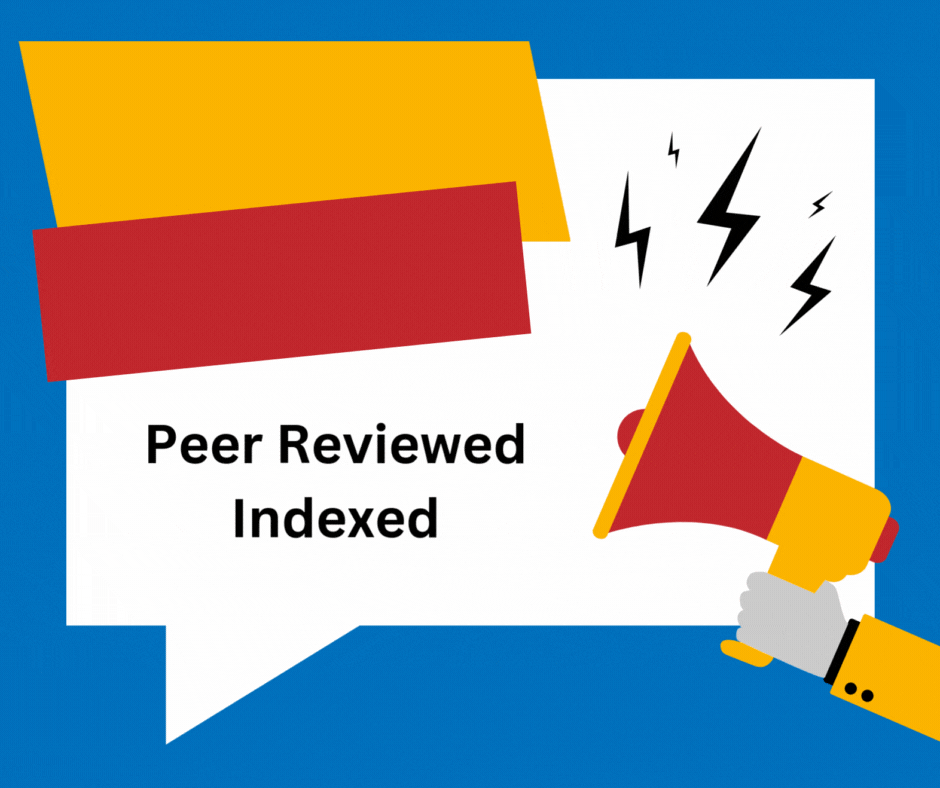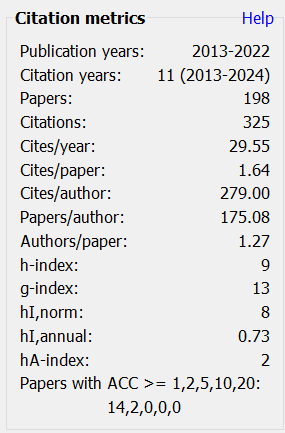Conceptual Framework of eService delivery system in Developing Countries with a high level of Instability
Keywords:
Instability, eGov, eService, barriers, enablers, frameworkAbstract
This study proposes a conceptual framework which captures the main factors (both enablers and barriers) influence and contributes toward a successful implementation of eServices in countries that have unstable status. In such countries, eService is still necessary and governments face extra challenges in their provision, however, academic literature that covers transformational eGov activity in periods of geopolitical instability is uncommon. Our aim is to address this gap in the literature by identifying factors that might affect the success of such implementation. We use the example of Syria and other developing countries facing similar challenges to tackle this problem. The paper draws upon Osborn and Gaebler’s work, ‘reinventing government’, which identifies 10 principles of government transformation. This is used to examine eGov examples in the case of Syria along with previous work covering barriers and enablers to eGov activities within countries that have unstable status. The resulting derived conceptual framework provides a base to understand eGov activity for nations going through geopolitical uncertainty.
Downloads
Metrics
References
Abanumy, A., Al-badi, A., & Mayhew, P. (2005). e-Government Website Accessibility?: In-Depth Evaluation of Saudi Arabia and Oman. The Electronic Journal of E-Government Volume, 3(3), 99–106.
Abdul Rahim, A., & Al Athmay, A. (2013). E-governance in arab countries: status and challenges. GLOBAL JOURNAL OF BUSINESS RESEARCH, 7(5).
Abu-shanab, E., Abu Al-rub, S., & Md Nor, K. (2010). Obstacles Facing the Adoption of E-Government Services in Jordan. Journal of E-Governance, 33, 35–47. doi:10.3233/GOV-2010-0204
Alanezi, M., Mahmood, A., & Basri, S. (2012). E-GOVERNMENT SERVICE QUALITY:A QUALITATIVE EVALUATION IN THE CASE OF SAUDI ARABIA. The Electronic Journal on Information Systems in Developing Countries, 1–20.
Al-Azri, A., Al-Salti, Z., & Al-Karaghouli, W. (2010). The successful implementation of e-government transformation: A case study in Oman. In European, Mediterranean & Middle Eastern Conference on Information Systems 2010 (EMCIS2010). Abu Dhabi: Brunel University.
Al-Busaidy, M. (2011). EVALUATING THE INSTITUTIONAL FACTORS AFFECTING E-GOVERNMENT IMPLEMENTATION.
Al-Khouri, A. M. (2012). eGovernment Strategies: The Case of the United Arab Emirates. European Journal of ePractice, 17, 126–150.
Almarabeh, T., & Abu Ali, A. (2010). A General Framework for E-Government?: Definition Maturity Challenges , Opportunities , and Success. European Journal of Scientific Research, 39(1), 29–42.
Almarabeh, T., Mohammad, H., & Abu Ali, A. (2009). E-government in Jordan. European Journal of Scientific Research, 35(2), 188–197.
Al-Omari, A., & Al-Omari, H. (2006). E-Government Readiness Assessment Model. Journal of Computer Science, 2(11), 841–845. doi:10.3844/jcssp.2006.841.845
Alsaeed, A., Adams, C., & Boakes, R. (2014a). CHALLENGES TO THE SUCCESSFUL IMPLEMENTATION OF E-GOVERNMENT INITIATIVES IN MIDDLE-EAST ARABIC COUNTRIES AND SYRIA: LITERATURE REVIEW. In tGov workshop 14 (Vol. 14, pp. 27–38). London.
Alsaeed, A., Adams, C., & Boakes, R. (2014b). The Need for Policies to Overcome eGov Implementation Challenges. International Journal of Electronic Government Research, 10(3), 66–79.
Al-Shboul, M., & Alsmadi, I. (2010). Jordan E-Government Challenges and Progresses. International Journal of Advanced Corporate Learning (iJAC), 3(1), 37–42. doi:10.3991/ijac.v3i1.1164
Alsmadi, I. (2011). Security Challenges for Expanding E- governments’ Services. International Journal of Advanced Science and Technology, 37, 47–61.
Altaany, F., & Al-zoubi, M. I. (2013). A Comparison between E-Government Ranks in Jordan and Malaysian Government. International Journal of Advanced Computer Research, 3(13).
Andersen, T. B. (2009). E-Government as an anti-corruption strategy. Information Economics and Policy, 21(3), 201–210. doi:10.1016/j.infoecopol.2008.11.003
Awan, M. A. (2007). Dubai e-Government?: An Evaluation of G2B Websites, 6(3), 115–130. doi:10.1300/J179v06n03
Azab, N. A., Kamel, S., & Dafoulas, G. (2009). A Suggested Framework for Assessing Electronic Government Readiness in Egypt. eJournal of E-Government, 7(1), 11–28.
Blakeley, C. J., & Matsuura, J. H. (2001). E-GOVERNMENT?: IS E-DEMOCRACY INEVITABLE
Btoush, M. a H. (2009). Evaluation of EmGovernment Services in Jordan?: Providers ’& Users ' Perceptions, (January).
Chatfield, A. T., & Alhujran, O. (2009). A Cross-Country Comparative Analysis of E-Government Service Delivery among Arab Countries, 15(June 2009), 151–170. doi:10.1002/itdj
Chen, A. J., Pan, S. L., Zhang, J., Huang, W. W., & Zhu, S. (2009). Managing e-government implementation in China: A process perspective. Information & Management, 46(4), 203–212. doi:10.1016/j.im.2009.02.002
Ciborra, C., & Navarra, D. D. (2005). Good governance, development theory, and aid policy: Risks and challenges of e-government in Jordan. Information Technology for Development, 11(2), 141–159. doi:10.1002/itdj.20008
Danish, D. (2006). The Failure of E-Government in Developing Countries: A Literature Review. The Electronic Journal of Information Systems in Developing Countries, 26(7), 1–10.
Ebrahim, Z., & Irani, Z. (2005). E-government adoption: architecture and barriers. Business Process Management Journal, 11(5), 589–611. doi:10.1108/14637150510619902
Ebrahim, Z., Irani, Z., & Al Shawi, S. (2004). A Strategic Framework for E-government Adoption in Public Sector Organisations. In Americas Conference on Information Systems (AMCIS) (pp. 1116–11125). New York, NY, USA.
El-qawasmeh, E., & Owais, S. (2010). E-DEMOCRACY IN MIDDLE EAST?: HARD TO APPROACH.
Farzali, E., Kanaan, G., Kanaan, R. K., & Atieh, K. (2012). E-Government in Syria: Obstacles and Interoperability Framework. In K. J. Bwalya & S. Zulu (Eds.), Handbook of Research on E-Government in Emerging Economies: Adoption, E-Participation, and Legal Frameworks (Vol. I, pp. 217–236). Hershey - USA: Information Science Reference ( an imprint of IGI Global ).
Gant, J. P. (2008). Electronic Government for Developing Countries, (August).
Hadi, W., & Nawafleh, S. (2012). THE ROLE OF E-BUSINESS IN THE E-GOVERNMENT SERVICES IMPLEMENTATION. International Journal of Academic Research, 4(6), 224–229. doi:10.7813/2075-4124.2012/4-6/A.30
HASSAN, H. (2011). AN INVESTIGATION OF E-SERVICES IN DEVELOPING COUNTRIES: THE CASE OF E-GOVERNMENT IN EGYPT. granfield university.
HASSAN, H. S. H. (2011). AN INVESTIGATION OF E-SERVICES IN DEVELOPING COUNTRIES: THE CASE OF E-GOVERNMENT IN EGYPT. CRANFIELD UNIVERSITY.
Hassna, G., & Ahmad, H. (2006). E-Government in Syria, 894–899.
Heeks, R. (2001a). Reinventing Government in the Information Age: International Practice in IT-enabled Public Sector Reform. London: Routledge.
Heeks, R. (2001b). Understanding e-Government for Development (No. 11). i-Government Working Paper Series. Manchester,UK: Institute for Development Policy and Management. Retrieved from http://www.sed.manchester.ac.uk/idpm/research/publications/wp/igovernment/documents/igov_wp11.pdf
Heeks, R. (2002). eGovernment in Africa: Promise and Practice (No. 13). iGovernment Working Paper Series. Manchester: Institute for Development Policy and Management.
Heeks, R. (2003). Most eGovernment for Development Projects Fail?:how risk can be reduced? (No. 14). Manchester.
Heeks, R. (2006). Implementing and managing e-government: An International Text. London: SAGE Publications Ltd.
Helbig, N., Ramón Gil-García, J., & Ferro, E. (2009). Understanding the complexity of electronic government: Implications from the digital divide literature. Government Information Quarterly, 26(1), 89–97. doi:10.1016/j.giq.2008.05.004
Jait, A. (2012). Government E-Services Delivery Requires Citizens a Wareness?: the Case of Brunei Darussalam.
Kafaji, M. A. (2013). Evaluating the Roll of Service Quality as a Mediator on User Satisfaction in e- GOVERNMENT Applications, (Goldfinch 2007).
Khan, G. F., Moon, J., Rhee, C., & Rho, J. J. (2010). E-government Skills Identification and Development?: Toward a Staged-Based User-Centric Approach for Developing Countries *, 20(1), 1–31.
Khasawneh-Jalghoum, S. S. (2011). A Case Study of Drivers and Barriers to E-Government Initiative in Jordan. University of Manchester.
Montagna, J. M. (2005). A framework for the assessment and analysis of electronic government proposals. Electronic Commerce Research and Applications, 4(3), 204–219. doi:10.1016/j.elerap.2005.01.003
Nations, U. (2012). Implementation of General Assembly resolution 66/253 B on the situation in the Syrian Arab Republic Report, 46820(August), 1–8.
Nations, U. (2013). Budget performance of the United Nations Supervision Mission in the Syrian Arab Republic for the period from 14 April to 30 June 2012 Report, 21028(January).
Ndou, V. (2004). E – GOVERNMENT FOR DEVELOPING COUNTRIES: OPPORTUNITIES AND CHALLENGES, 1–24.
Osbome, D., & Gaebler, T. (1992). REINVENTING GOVERNMENT: how the entrepreneurial spirit is transforming the public sector.
Pons, A. (2005). E-Government for Arab Countries.
Qasimi, L. Al, McConnell, B., Ni, P., Liquan, C., Orrego, C., Lowenthal, A. F., & Ronen, J. (2002). Roadmap for E-government in the Developing World 10 Questions E-Government Leaders Should Ask Themselves. Los Angeles: Pacific Council on International Policy.
Rabaiah, A., & Vandijck, E. (2009). A Strategic Framework of e-Government?: Generic and Best Practice. eJournal of E-Government, 7(3), 241–258.
Sallard, O., & Alyousuf, N. A. (2007). Measuring and Evaluating E-Government in Arab Countries, (March), 12–13.
Saudi Arabia government. (2012). Second National e-Government Action Plan For Kingdom of Saudi Arabia, 1–48.
Sethi, N., & Sethi, V. (2008). E-government Implementation?: A Case Study of Dubai e-Government, 185–195.
Strachan, P., Wanous, M., & Mofleh, S. (2008). DEVELOPING COUNTRIES AND ICT INITIATIVES: LESSONS LEARNT FROM JORDAN’S EXPERIENCE, 1–17.
SWEISI, N. A. A. O. (2010). E-Government Services an Exploration of the Main Factors that Contribute to Successful Implementation in Libya. University of Portsmouth.
Syria Arab Republic. (2008). Enhancing Institutional Capacity for E-Government Implementation syria.pdf.
UNHCR. (2012). Displacement the new 21st century challenge.
UNHCR. (2014). 2014 Syria Regional Response Plan Strategic Overview. New York, NY, USA.
Unicef UK. (2014). Emergency Alert.
United Nations. (2010). E-Government Survey 2010 Leveraging e-government at a time of financial and economic crisis. New York - USA: UN Publishing Section.
United Nations. (2012). E-Government Survey 2012, E-Government for the people.
Watson, R. T. (2002). A NALYZING THE P AST TO P REPARE FOR THE F UTURE?: W RITING A, 26(2).

Downloads
Published
How to Cite
Issue
Section
License
Revised Copyright/CC license that applies to all the articles published after 05-02-2017
Attribution-NonCommercial 4.0 International (CC BY-NC 4.0)

Copyright/CC license that applies to all the articles published before 05-02-2017
Attribution-Non Commercial-No Derivatives 4.0 International (CC BY-NC-ND 4.0)

Author(s) will retain all the right except commercial and re-publishing rights. In the case of re-publishing, they will have to obtain written permission from the journal. Additional licensing agreements (Creative Commons licenses) grants rights to readers to copy, distribute, display and perform the work as long as you give the original author(s) credit, they can not use the works for commercial purposes and are not allowed to alter, transform, or build upon the work. For any reuse or distribution, readers and users must make clear to others the license terms of this work. Any of these conditions can be waived if you get permission from the copyright holders. Nothing in this license impairs or restricts the authors’ rights. To view a copy of this license, visit http://creativecommons.org/licenses/by-nc-nd/4.0/ or send a letter to Creative Commons, 171 Second Street, Suite 300, San Francisco, California, 94105, USA.
Research Papers published in SOCRATES are licensed under an Attribution-NonCommercial-NoDerivatives 4.0 International (CC BY-NC-ND 4.0)












